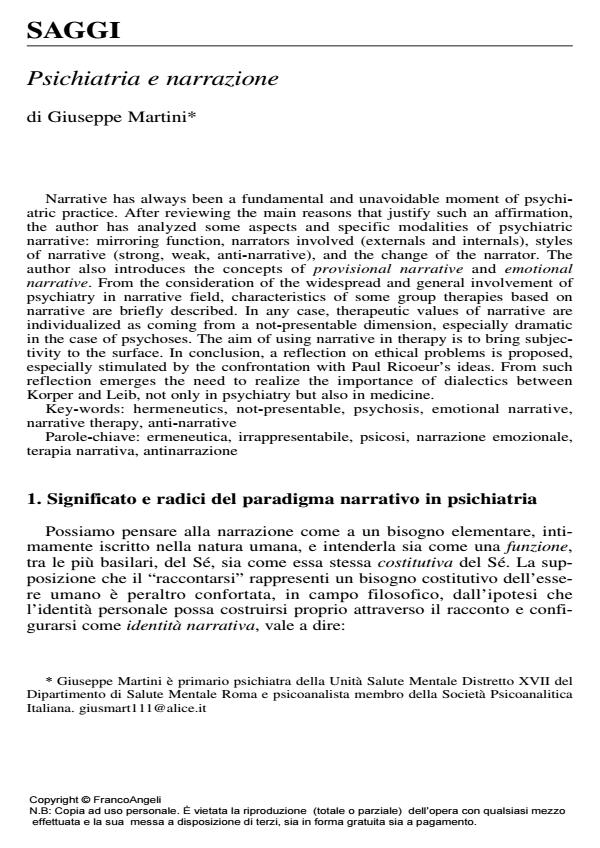Psychiatry and narrative
Journal title SALUTE E SOCIETÀ
Author/s Giuseppe Martini
Publishing Year 2010 Issue 2010/2
Language Italian Pages 20 P. 17-36 File size 307 KB
DOI 10.3280/SES2010-002003
DOI is like a bar code for intellectual property: to have more infomation
click here
Below, you can see the article first page
If you want to buy this article in PDF format, you can do it, following the instructions to buy download credits

FrancoAngeli is member of Publishers International Linking Association, Inc (PILA), a not-for-profit association which run the CrossRef service enabling links to and from online scholarly content.
Narrative has always been a fundamental and unavoidable moment of psychiatric practice. After reviewing the main reasons that justify such an affirmation, the author has analyzed some aspects and specific modalities of psychiatric narrative: mirroring function, narrators involved (externals and internals), styles of narrative (strong, weak, anti-narrative), and the change of the narrator. The author also introduces the concepts of provisional narrative and emotional narrative. From the consideration of the widespread and general involvement of psychiatry in narrative field, characteristics of some group therapies based on narrative are briefly described. In any case, therapeutic values of narrative are individualized as coming from a not-presentable dimension, especially dramatic in the case of psychoses. The aim of using narrative in therapy is to bring subjectivity to the surface. In conclusion, a reflection on ethical problems is proposed, especially stimulated by the confrontation with Paul Ricoeur’s ideas. From such reflection emerges the need to realize the importance of dialectics between Korper and Leib, not only in psychiatry but also in medicine.
Keywords: Hermeneutics, not-presentable, psychosis, emotional narrative, narrative therapy, anti-narrative
Giuseppe Martini, Psichiatria e narrazione in "SALUTE E SOCIETÀ" 2/2010, pp 17-36, DOI: 10.3280/SES2010-002003